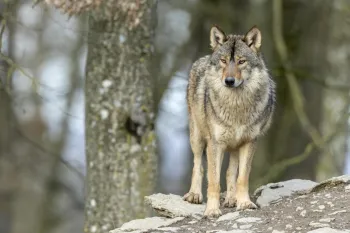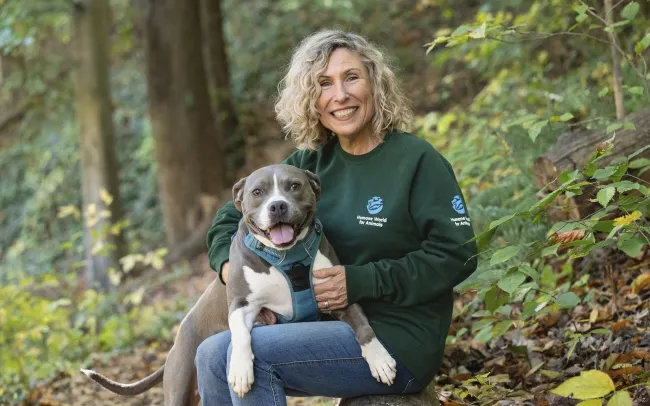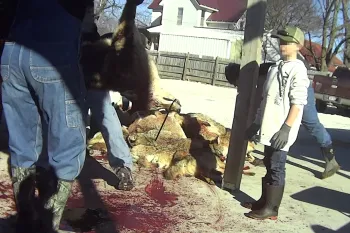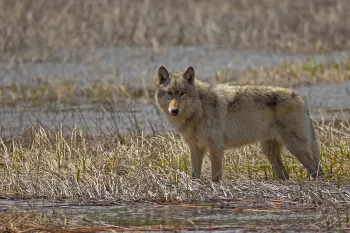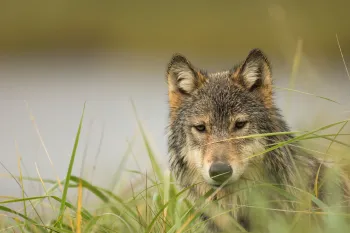We take comfort in a small but positive bend in the moral universe’s arc toward justice for animals after a Wyoming grand jury’s indictment of a man for shocking and callous cruelty to a gray wolf. He is charged with running over the wolf with his snowmobile in late February 2024, dragging her into a local watering hole in Daniel, Wyoming (population 148), taunting and tormenting her as she lay injured and bound in front of patrons, and finally, taking her outside to kill her. He now faces a maximum sentence of two years’ imprisonment and/or a fine of $5000, under Wyoming’s anti-cruelty statute.
On its face, of course, this is despicable conduct. In a more advanced and morally principled setting, there would be resounding consensus that such an action is deserving of punishment. But this happened in Wyoming, one of those states still burdened by a longstanding prejudice that—whatever our ethical obligations to domestic animals might be—we have no such duties to wildlife. There are other states where this is so, and yet this case, as much as any in our memories, highlights a striking contradiction in social, cultural and legal conceptions of animal cruelty. That’s what makes this indictment a big deal.
After this revolting incident came to public attention, members of our animal protection law team supported Wyoming advocates and organizations in their efforts to persuade authorities that certain specific actions of the suspect met the definition of both misdemeanor and felony cruelty under existing Wyoming law, and that the state could and should prosecute him. It was clear to us that there was no refuge for him in the statute’s stated exemptions concerning wildlife.
We understood, too, that there is a supremely important principle at issue in this case, one that we wish was more widely understood and accepted after nearly 160 years of organized animal protection work in the United States. All animals, including wild animals, are deserving of society’s basic concern, moral consideration and protection from the worst kind of cruelty, the kind so horribly and hauntingly on display that night at the Green River Bar.
Nor did this cruelty take place in a vacuum. It occurred in the very region of the country in which the states with resident wolf populations, unrestrained by federal law and the listing of wolves under the Endangered Species Act, have all but declared war on them. Their assault has taken the form of hostile state legislation or rules authorizing higher killing quotas, authorization of cruel methods of killing, and permitting the killing of wolves without even a license. And that’s not to mention the political and practical support that the rapacious governments of several of these states are receiving from Congress and the Trump administration, in the form of malice-driven legislation, appropriations mischief and other maneuvers.
In early August, a federal judge in Montana ruled that the U.S. Fish and Wildlife Service ran afoul of the law when it denied a petition to protect gray wolves in the Rocky Mountains under the ESA. This ruling, which came in response to a petition we filed with partner organizations, means that the agency must now revisit the question of whether to grant federal protections to wolves in Idaho, Montana and Wyoming, along with portions of three other states, Oregon, Utah and Washington.
Of the many things that sadden us about this deeply disturbing incident, one of the most disconcerting is the fact that only one patron of the bar chose to report what occurred that night to law enforcement or other government authorities. Even now, some residents of Sublette County continue to express their worry and anxiety about the unwelcome attention and tension that the indictment will bring.
We see it differently. Because one person present that night decided to bear witness, and one County Attorney, despite opposition from the state fish and game department and some predictable local interests, is pursuing this prosecution, we can mark and remember a small but certain move toward greater justice in the world.
Sara Amundson is president of Humane World Action Fund.
